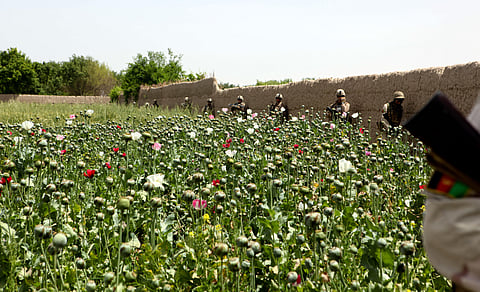

Afghanistan’s Ministry of Agriculture, Irrigation, and Livestock (MAIL) announced on Sunday that it has approved a comprehensive five-year alternative livelihoods plan aimed at helping farmers transition away from poppy cultivation. The plan follows the Taliban government’s 2022 ban on opium production, a move that has caused widespread hardship among farmers who relied on the crop as their main source of income.
According to MAIL, the initiative is designed to offer “halal and sustainable economic opportunities” across agriculture, livestock, natural resources, and irrigation. The program targets direct benefits for approximately 149,900 farmers and indirect support for more than one million people.
The plan is expected to cost 4.79 billion Afghanis (about $65 million USD) and will focus on value chain development in several key areas — including orchard expansion, grain production, livestock breeding, irrigation improvements, greenhouse construction, and farmer training centers.
“The Ministry of Agriculture, Irrigation, and Livestock of the Islamic Emirate of Afghanistan remains committed to supporting and guiding farmers toward legitimate, sustainable, and blessed agricultural production,” said Sher Mohammad Hatami, a spokesperson for the ministry.
Among the alternative crops being promoted are saffron, cotton, wheat, fruits, vegetables, and basil — all of which have been identified as potential export products that could replace income lost from the opium trade, though training and assistance in providing the necessary equipment would be also needed by the farmers, which the plan addresses.
Before the 2021 Taliban takeover, Afghanistan was responsible for over 80% of the world’s opium supply. Following the ban, production reportedly fell to less than 5%, according to international estimates. However, the sharp decline has also left tens of thousands of rural families struggling economically. The new five-year plan marks the first major state-backed effort to provide farmers with sustainable and legitimate sources of livelihood while maintaining the government’s ban on narcotics cultivation.